The views expressed in our content reflect individual perspectives and do not represent the authoritative views of the Baha'i Faith.
How do Baha’is promote the recognition of Indigenous beliefs? We explore that question in our continuing conversation between scholar Chris Buck and Lakota artist and author Kevin Locke.
Q: Kevin, I recently came across this remarkable letter from the Universal House of Justice, the democratically-elected international Baha’i council that oversees the affairs of the Baha’i world:
It is, of course, true that new movements of thought, especially in the field of religion, tend to obliterate old ones, or to transform their nature in the eyes of the people ….
The House of Justice feels that in discussion with … you should not challenge this point, nor should you enter into criticisms of the often ruthless manner in which the followers of new religions have suppressed the old ways. It is suggested that, instead, you present the Baha’i concepts, as expressed by Abdu’l-Baha, namely that the fountainhead of all religions is to be found in God through the Teachings of His Prophets, and that all peoples have drunk at this ocean of divine Revelation ….
The Baha’i attitude to earlier religions, therefore, is not that they are false or “heathen”, but that, at root, they are all true and that these fundamental truths still persist within them. Baha’is encourage Indians in South America, for example, to see and reverence the profound spiritual truths which are to be found in both their pre-Christian religions and in the Catholicism which, in later centuries, has to varying degrees supplanted or overlaid their archaic faiths. Through the Baha’i teachings, the inner conflict which many still feel between their ancient religions and Christianity is resolved and, at the same time, they are enabled to understand their spiritual unity with the peoples of other continents, such as Buddhists, Hindus and Muslims with whom they will undoubtedly come into contact with increasing frequency.
An example of the Baha’i attitude is to be found in the operation of such radio stations as Radio Baha’i Ecuador, which has a policy of encouraging Indian arts and music and fostering in the Indians pride in their heritage. – Letter dated 22 March 1988, written on behalf of the Universal House of Justice to a National Spiritual Assembly
So Kevin, would you please comment on this Baha’i “policy of encouraging Indian arts and music and fostering in the Indians pride in their heritage”?
A: Yes! Unlike the U.S., where the policy towards Indigenous people was extermination, in the Andean region of South America, colonizers enslaved the Indigenous population to work the mines. Consequently, the traditional arts and music were suppressed and marginalized. Radio Baha’i Ecuador has long been the sponsor of beautiful music and dance festivals in the regions they serve. I had the bounty of attending such a festival in the Aymara and Quechua area surrounding Lake Titicaca. Each village displayed their own unique ancestral traditions. My feeling was that it was not so much pride as the release of a long pent-up, suppressed collective voice from the heart of the Andes, celebrating a new day in which this voice could be conjoined with and heard by all in our emerging global civilization.
Q: In your book, Arising, I see that this experience took place in the summer of 1988, when you were asked to travel to Bolivia and Peru with the “Trail of Light” expedition. This team of Baha’i travel teachers consisted of Indigenous people like Sabino Ortega, “a prominent, respected Indigenous man, who provided us with Quechua translations;” Dr. Eloy Anello, founder of University Nur, who “served as our Spanish translator”; Jacqueline Left Hand Bull; Randy Chipps-Dihtidaht, from Western Vancouver Island; Phil Lane, Jr., Dakota/Choctaw from Washington State, your late mother, Patricia Locke, and yourself. You write, in part:
My mother had spent much of her adult life working in political activism. Though she and her colleagues had achieved victories to improve educational access and cultural preservation for Indigenous people, she abhorred the negativity and divisiveness of politics, with its potential for corruption. Because the Baha’i teachings offered relief from the political corruption around the world and offered common-sense and progressive teachings, such as the equality of men and women, the eliminations of the extremes of wealth and poverty, and the dismantling of prejudices of all kinds, she was intellectually curious.
However, her negative encounters with Christianity had made her cautious when dealing with religion. As a child in Catholic boarding school, my mother disdained the restrictions placed on women within the Church and the persecution of Indigenous culture, including its spiritual practices, within the school. During her career, she had endeavored to create an awareness of and preserve North American Indigenous spiritual heritage, and she had worked tirelessly to dispel the prevailing view of Indigenous culture as satanic. She feared that the Faith was another organized religion that would ultimately oppress Indigenous people. …
We had many conversations in which I shared how the Faith affirms Indigenous spirituality. …
Of all the villages we visited in Bolivia and Peru, the small mountain community of Miskipampa held a significant place in my heart, especially for the profound impact its people had on my mother. … Many of these families were members of the Baha’i Faith. Though they were considered to be among the poorest Indigenous people materially, we regarded them as unbelievably wealthy because of the spirit of cooperation and love that pervaded their village. …
At the entrance of the village, we passed under an archway of woven branches. The entire village had arisen and come out to greet us at this early hour. The entire land was filled with the light of the brilliant flames of the candles they held. I was moved beyond words by their hospitality. My travel companions and I had entered a community of spiritual connection and unity. The moment we walked beneath that archway, we transitioned from being strangers to relatives of Miskipampa.
Each of the village members, as we approached them, looked in our eyes with the utmost tenderness and embraced us. They placed their left cheek on our right cheek and then their right cheek on our left. “Allah’u’abha,” they said. This greeting, used among the Baha’is of the world, means “God is most Glorious” in Arabic. We walked from village member to village member. Each person embraced us as family and lovingly greeted us with “Allah’u’abha.”
My mother, who did not yet consider herself a Baha’i, began to reciprocate the loving greeting back to our hosts. “Allah’u’abha,” she replied after each embrace. “Allah’u’abha.” At the end of this long procession, this warm and phenomenal welcome, her association with the pure-hearted people of Miskipampa opened her own heart and mind more completely to the teachings of Baha’u’llah. That night, she gave her heart to Baha’u’llah, even though her official declaration occurred upon our return to the United States. – Excerpt from Kevin Locke’s Arising, pp. 177-185.
Q: Thanks for relating that wonderful story, Kevin. I can see how this Baha’i “policy of encouraging Indian arts and music and fostering in the Indians pride in their heritage” greatly promotes unity, both in the local Indigenous communities, and also across the Americas, and then with the rest of the world. What an enlightened approach to Indigenous arts, music, and heritage – which includes Indigenous spiritual heritages! In the next article in this series, I’ll ask you specifically about this related Baha’i policy from the Universal House of Justice as well: “Baha’is encourage Indians in South America, for example, to see and reverence the profound spiritual truths which are to be found in … their pre-Christian religions.”


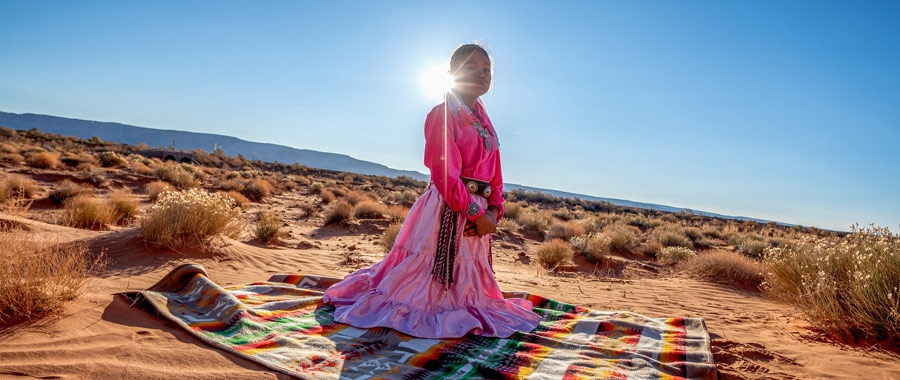
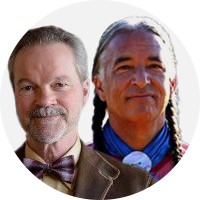
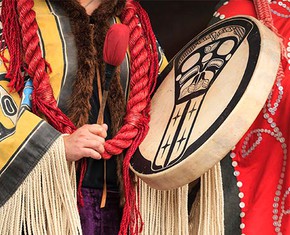
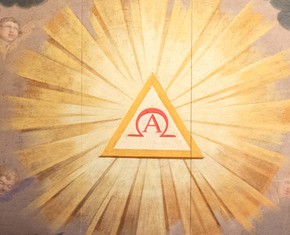
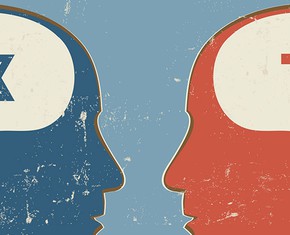









Comments
Sign in or create an account
Continue with Googleor